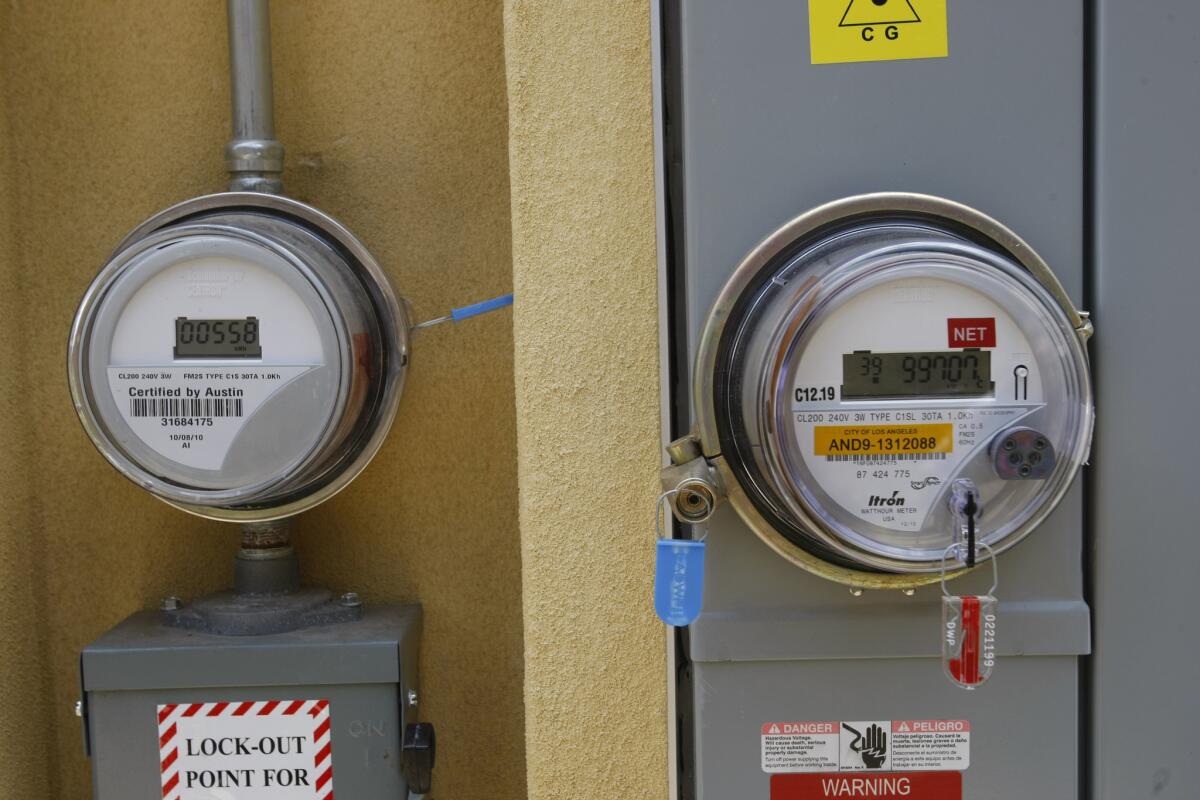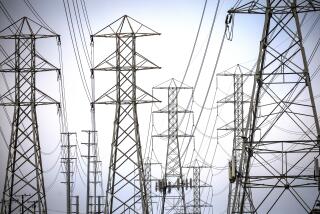Environment, not cash, encourages L.A. residents to save electricity

What does it take to get the average Angeleno to shut off the lights, or unplug a few power-swilling appliances and e-gadgets?
According to UCLA researchers, the least effective way to get a Los Angeles family to save electricity is by telling them how much theyâll save in the process -- mostly because itâs not a whole lot.
Instead, researchers said it was far more persuasive to tell energy consumers just how many pounds of pollution their power usage generated, and how that pollution has been linked to diseases like cancer and childhood asthma.
In a paper published Monday in the journal PNAS, environmental economists wrote that when people were told how their power consumption affected the environment, they cut their energy use by 8% on average.
The drop was even greater if they if they had children living in the home -- 19%.
But when they were told how much they could save by using as much power as their most efficient neighbor -- $4 to $6 a month -- the reduction was negligible, study authors said.
The authors noted that the cash savings was âroughly equivalent to a fast food combo meal or two gallons of fortified whole milk.â
The research was conducted by Omar Asensio, a UCLA doctoral student studying economics and environmental sciences and engineering, and Magali Delmas, a professor of management at the UCLA Institute of the Environment and UCLA Anderson School of Management.
The study involved 118 LADWP customers at UCLAâs University Village, a large family housing community for single, married and domestically partnered graduate students.
Study participants were divided into two groups and their energy use was followed for eight months.
Both groups received regular email messages about their power usage, but one group was told how much more they were paying for electricity than their neighbors, while the other group was told how many more pounds of air pollution they were creating than their neighbor.
The study participants were also given access to a website that listed the historic and real-time electricity use for appliances in their homes.
âThe relationship between electricity use and impacts on the environment and global health remains an elusive concept for many consumers,â authors wrote.
âThe generation of fine-particulate air pollution and its effects on health are usually removed from ordinary daily consumer decision making. This low consumer awareness stands in contrast to strides in our scientific understanding.â
According to the U.S. Energy Information Administration, 39% of the nationâs electrical power was generated by coal-fired plants in 2013. Natural gas accounted for 27%.
Study authors said it is unknown whether the energy conservation persisted after the end of the experiment.
âThe majority of the participants described that they achieved reduced energy use by unplugging electronics, changing the power savings settings of their computer or other electronics, or programming different temperature settings on their thermostat,â authors wrote.
âThis is important because it suggests that the savings resulting from these changes could persist even without taking further action.â
Follow @montemorin for science news







